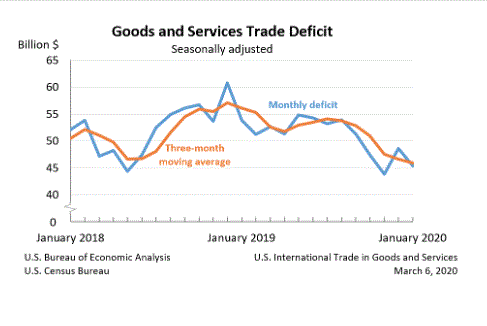FACT SHEET
Commerce Issues Affirmative Preliminary Determination in the Countervailing Duty Investigation of Imports of Forged Steel Fittings from India
• On March 24, 2020, the Department of Commerce (Commerce) announced the affirmative preliminary determination in the countervailing duty (CVD) investigation of imports of forged steel fittings from the India.
• The CVD law provides U.S. businesses and workers with a transparent, quasi-judicial, and internationally accepted mechanism to seek relief from the market-distorting effects caused by unfair subsidization of imports into the United States, establishing an opportunity to compete on a level playing field.
• For the purpose of a CVD investigation, a countervailable subsidy is financial assistance from a foreign government that benefits the production of goods by foreign companies and is limited to specific enterprises or industries, or is contingent either upon export performance or upon the use of domestic goods over imported goods.
• Commerce calculated a preliminary subsidy rate of 2.65 percent for Shakti Forge Industries Pvt. Ltd. and its cross-owned affiliate, Shakti Forge (collectively, Shakti). Commerce assigned a subsidy rate of 284.91 percent, based entirely on adverse facts available, to the mandatory respondents Nikoo Forge Pvt. Ltd. and Pan International, as well as several other producers/exporters that failed to provide information requested by Commerce. The preliminary subsidy rate calculated for all other producers/exporters is 2.65 percent.
• Commerce will instruct U.S. Customs and Border Protection (CBP) to collect cash deposits from importers of forged steel fittings from India based on these preliminary rates.
• The petitioners are Bonney Forge Corporation (Mount Union, PA) and the United Steel, Paper and Forestry, Rubber, Manufacturing, Energy, Allied Industrial and Service Workers International Union.
• The scope of this investigation can be found in Attachment 1.
• In 2018, imports of forged steel fittings from India were valued at an estimated $92.6 million.
• The Preliminary Decision Memorandum is on file electronically via Enforcement and Compliance’s Antidumping and Countervailing Duty Centralized Electronic Service System (ACCESS). ACCESS is available to registered users at https://access.trade.gov, and to all parties in the Central Records Unit, Room B8024 of the main Department of Commerce building. Please refer to case number C-533-892.
NEXT STEPS
• Commerce is scheduled to announce its final determination on or about August 4, 2020, unless the deadline is extended.
• If Commerce makes a affirmative final determination, and the U.S. International Trade Commission (ITC) makes an affirmative final determination that imports of forged steel fittings from India materially injure, or threaten material injury to, the domestic industry, Commerce will issue a CVD order. If either Commerce’s or the ITC’s final determinations are negative, no CVD order will be issued. The ITC is scheduled to make its final injury determination approximately 45 days after Commerce issues its final determination, if affirmative.
###






